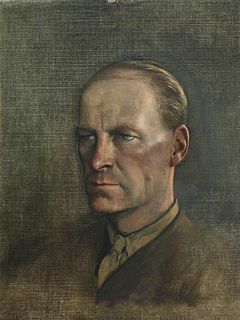A Quote by John Steinbeck
The craft of writing is the art of penetrating other minds with the figures that are in your own mind.
Related Quotes
Contemporary philosophers have exercised themselves with the problem of our knowledge of other minds. Enmeshed in the dogma of the ghost in the machine, they have found it impossible to discover any logically satisfactory evidence warranting one person in believing that there exist minds other than his own. I can witness what your body does, but I cannot witness what your mind does, and my pretensions to infer from what your body does to what your mind does all collapse, since the premises for such inferences are either inadequate or unknowable.
The story goes that every Jedi constructs his own lightsaber, and every penmonkey constructs his own pen. Meaning, we all find our own way through this crazy tangle of possibility. This isn't an art, a craft, a career, or an obsession that comes with easy answers and isn't given over to bullshit dichotomies. We do what we do in the way we do it and hope it's right. Read advice. Weigh it in your hand and determine its value. But at the end of the day - and at the start of it - what you should be doing is writing. Because thinking about writing and talking about writing just plain isn't writing.
Art is craft: all art is always and essentially a work of craft: but in the true work of art, before the craft and after it, is some essential durable core of being, which is what the craft works on, and shows, and sets free. The statue in the stone. How does the artist find that, see it, before it's visible? That is a real question.
All the great masters in the world have been saying only one thing down the centuries, "Have your own mind and have your own individuality. Don't be a part of the crowd; don't be a wheel in the whole mechanism of a vast society. Be individual, on your own. Live life with your own eyes; listen to music with your own ears." But we are not doing anything with our own ears, with our own eyes, with our own minds; everything is being taught, and we are following it.
Writing is self-taught. Consulting other people only teaches you to depend on their reactions, which may or may not be legitimate. Quit looking for approval ... Learn to evaluate your own work with a dispassionate eye ... the lessons you acquire will be all the more valuable because you've mastered your craft from within.



































